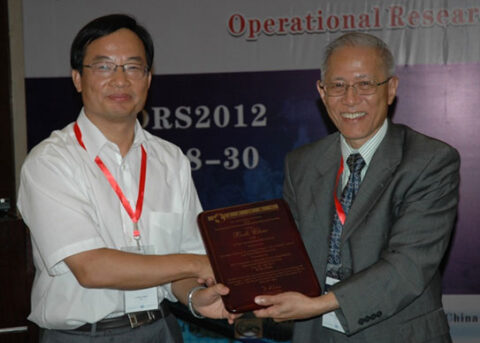Xiuli Chao
Title of Presentation: Dynamic Optimal Inventory Control with Limited Capital and Short-Term Financing
The 9th Triennial Conference of the Association of Asia-Pacific Operational Research Societies(APORS2012)
Xi’an, China
July 28-30, 2012
Abstract:
For most firms, especially the small- and medium- sized ones, the operational decisions are affected by their internal capital and ability to obtain external capital. However, the majority of the current studies on dynamic inventory control ignore the firm’s financial status and financing issues completely.
An important question that arises is: what are the optimal inventory and financing policies for firms with limited capital and limited access to external fund?
In this work, we study a dynamic inventory control problem where a capital-constrained firm periodically purchases a product from a supplier and sells it to a market with random demands. In each period, the firm can use its own capital and/or borrow a short-term loan from a lender to purchase the product, with the interest rate being increasing in the loan size. The objective is to maximize the firm’s expected terminal wealth at the end of the planning horizon. We show that the optimal inventory policy in each period is an equity-level dependent base-stock policy, where the equity level is the sum of the firm’s capital level and the value of its on-hand inventory evaluated at the purchasing price; and the structure of the optimal policy can be characterized by four intervals of the equity level. In two of these intervals, the optimal replenishment policy is of a base-stock type and the retailer borrows money if necessary; in the third interval, the retailer simply uses up all its cash and does not resort to the lender; while in the last interval, the optimal replenishment policy is complicated and is not even monotone in the equity level.
A joint work with X. Gong of the University of Michigan and D. Simichi-Levi of MIT, itsheds light on the dynamic inventory control for firms with limited capital and short-term financing.
Bio
Xiuli Chao is professor of Industrial and Operations Engineering at the University of Michigan, Ann Arbor. Prior to joining Michigan he was on the faculty of the Department of Industrial and Systems Engineering at North Carolina State University, and served as the co-director of the Interdisciplinary Operations Research Programs. Chao is the co-developer of Lekin Scheduling System, and is the co-author of two books, “Operations Scheduling with Applications in Manufacturing and Services” (Irwin/McGraw-Hill, 1998), and “Queueing Networks: Customers, Signals, and Product Form Solutions” (John Wiley & Sons, 1999). Chao received the 1998 Erlang Prize from the Applied Probability Society of INFORMS, and he received the Outstanding Young Scientist Award from National Natural Science Foundation of China in 2002, and the David F. Baker Distinguished Research Award from Institute of Industrial Engineers (IIE) in 2005.

